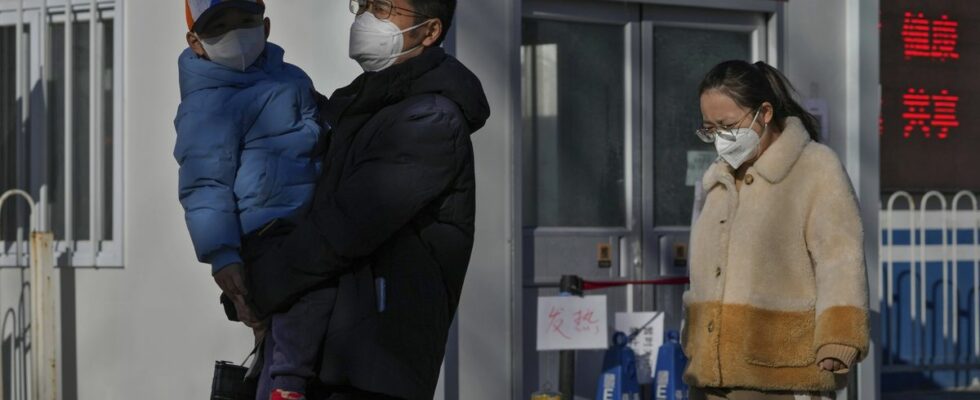The Middle Kingdom’s “zero Covid” policy has come to an end for a more flexible system. But the number of Covid-19 patients is exploding in Beijing, Chinese authorities said on Monday. This upsurge in cases comes after the sudden and drastic easing last week of health restrictions that until then allowed the country to contain the epidemic.
At the beginning of December again, in Beijing, only a minority of Chinese knew a relative who had been infected. But in recent days, the opposite seems to be happening, according to numerous publications on social networks and the findings of AFP. In the Chinese capital, the authorities indicated on Monday that more than 22,000 patients had visited the “fever” services of Beijing hospitals the day before, 16 times more than the previous Sunday.
Overnight relaxations
“The trend of the rapid spread of the epidemic in Beijing is still there,” Li Ang, spokesman for the city’s health department, told reporters. “The number of consultations for fever and flu has increased significantly, and the number of calls (…) to the emergency room has increased sharply. China announced on Wednesday resounding relaxations to its strict “zero Covid” health policy, which consisted of doing everything to avoid contamination and death.
The government had notably decided to end large-scale confinements and to stop the systematic placement of people who tested positive in quarantine centers – decried establishments, with very variable comfort. It is also no longer mandatory to present a negative Covid test to travel to another province. A decision applied overnight.
Understated numbers
In this context, the Ministry of Health reported on Monday 8,626 new local cases of people who tested positive. A figure in sharp decline but totally underestimated, because PCR tests are no longer compulsory and individuals only rarely inform the authorities of their positive self-tests, carried out in the privacy of their homes.
It has been difficult since last week to find medicine for colds and fever in pharmacies in Beijing. The same phenomenon is repeated with the self-tests. People have been stocking up in anticipation of an epidemic wave that now threatens the millions of unvaccinated older people. According to messages on social networks, peaks of infection would also affect more modest cities such as Baoding in Hebei province (north) or Dazhou in Sichuan (southwest), with overwhelmed hospitals and medicines out of stock. stock.
The uncertainty of the future
China is now entering an era of cohabitation with the coronavirus. But it is difficult to know to what extent it is ready to face the current wave of contamination. To justify the “zero Covid” strategy, the authorities had often argued that hospitals risked being overwhelmed in the event of relaxation.
One of the figures in the fight against Covid in China, the specialist in respiratory diseases Zhong Nanshan, indicated on Sunday that the Omicron variant was “spreading rapidly” in the country. Economically, the air sector seems to be benefiting from the lifting of restrictions. The number of flights at Beijing’s two main airports is expected “in the near future” to reach 70% of what it was in 2019, state broadcaster CCTV said on Monday.

